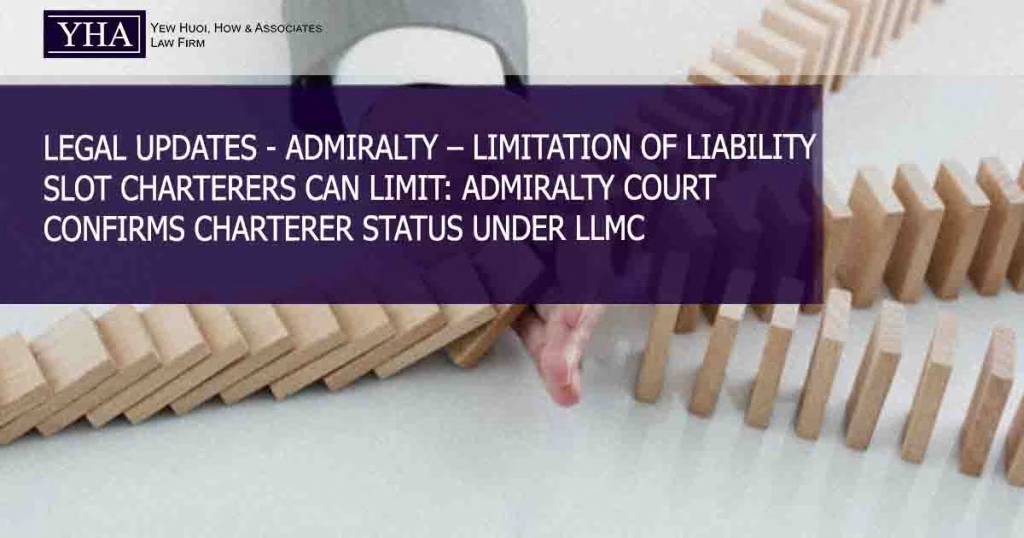1. Summary and Facts
Sea Consortium Pte Ltd (Trading As X-Press Feeders) and Others v Bengal Tiger Line Pte Ltd and Others [2025] 2 Lloyd’s Rep 209 concerns the container ship X-Press Pearl, which caught fire on 20.5.2021 and subsequently sank on 2.6.2021 off Colombo in Sri Lanka. It caused total loss of the ship and its cargo. The ship was owned by EOS, bareboat chartered to Killiney Shipping Pte Ltd, and time chartered to Sea Consortium Pte Ltd (trading as X-Press Feeders). Defendants Bengal Tiger Line (BTL), MSC, and Maersk had contracts for the use of slots on the vessel and sought declarations that they were “shipowners” under Article 1(2) Convention on Limitation of Liability for Maritime Claims 1976, as amended by the 1996 and 2012 Protocols (“the LLMC”), and thus entitled to limit liability.
The claimants were granted permission to constitute a Limitation Fund by letter of undertaking for claims arising out of the casualty. Therefore, the defendants applied to the High Court for the declaration as “shipowner” to limit their liability.
2. Legal Issues
• Whether the defendants can be declared as “shipowner” under Article 1(2) of the LLMC 1976.
• Whether the defendants, as fixed slot charterers, can be regarded as “charterers”.
3. Court’s Findings
• The UK Admiralty Court allowed the defendants’ application to be declared as “shipowners”.
• Article 1(2) defines “shipowner” to include the owner, charterer, manager, and operator of a seagoing ship.
• A slot charterer may be treated as a “charterer” under Article 1(2).
• A party is normally a “charterer” if its contract obliges the shipowner to make part of the carrying capacity available for carriage of goods the party undertakes as carrier.
• BTL, MSC, and Maersk were each “charterers”, therefore falling within the meaning of “shipowners” under Article 1(2).
• The interpretation potentially extends to NVOCCs depending on contract terms.
• The declarations did not affect Sri Lanka’s separate challenge under Article 4 for breaking limitation due to conduct barring the right to limit.
4. Practical Implications
This judgment affirms the position of fixed slot charterers:
• They are regarded as “shipowners” under Article 1(2).
• This applies even if the slot charterer only pays for slots actually used.
• Slot charterers can invoke limitation rights to shield themselves from unlimited exposure in cargo or casualty claims.
• Logistics providers and NVOCCs should review their contracts as they may benefit from limitation rights they previously did not anticipate.

